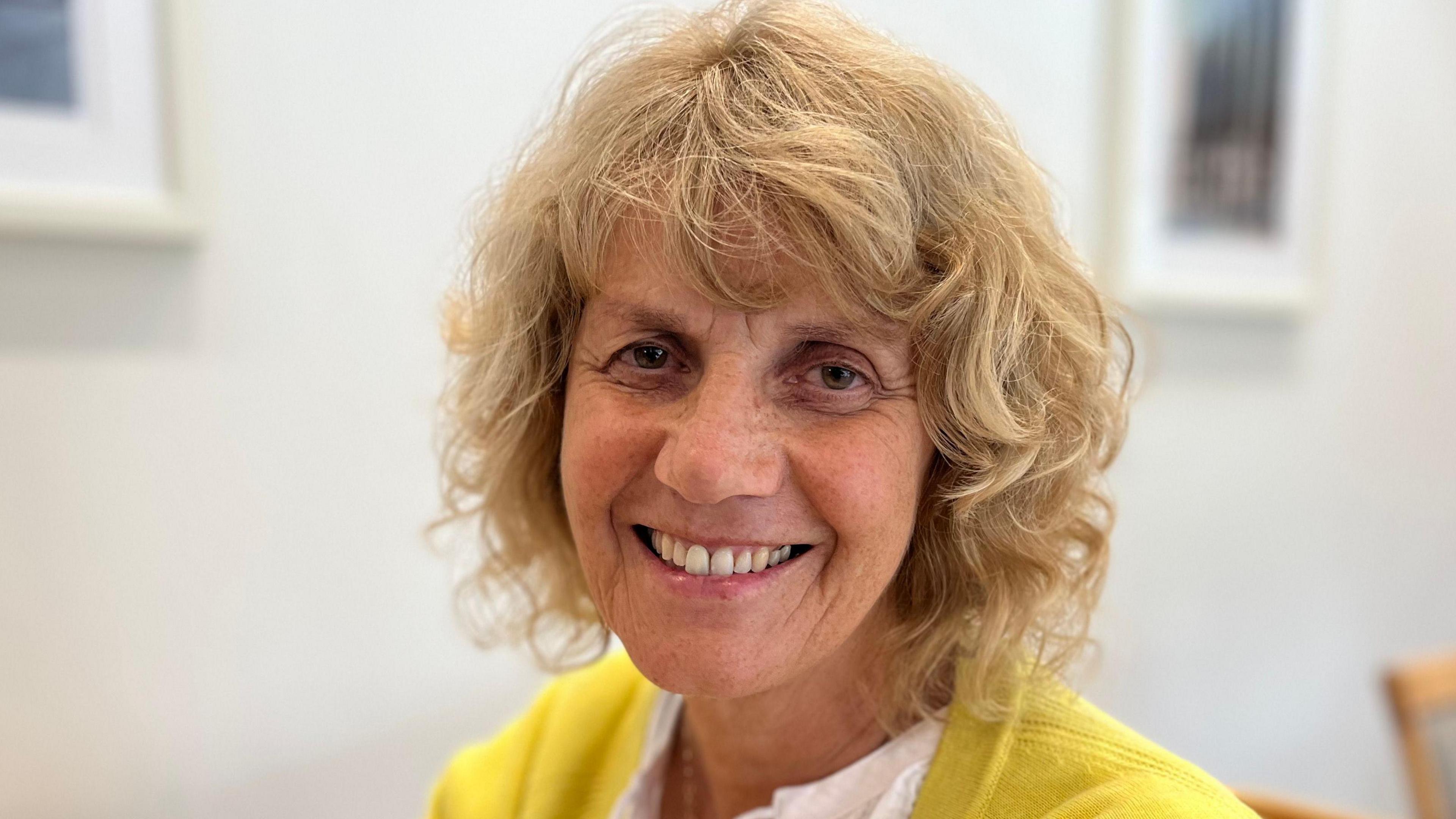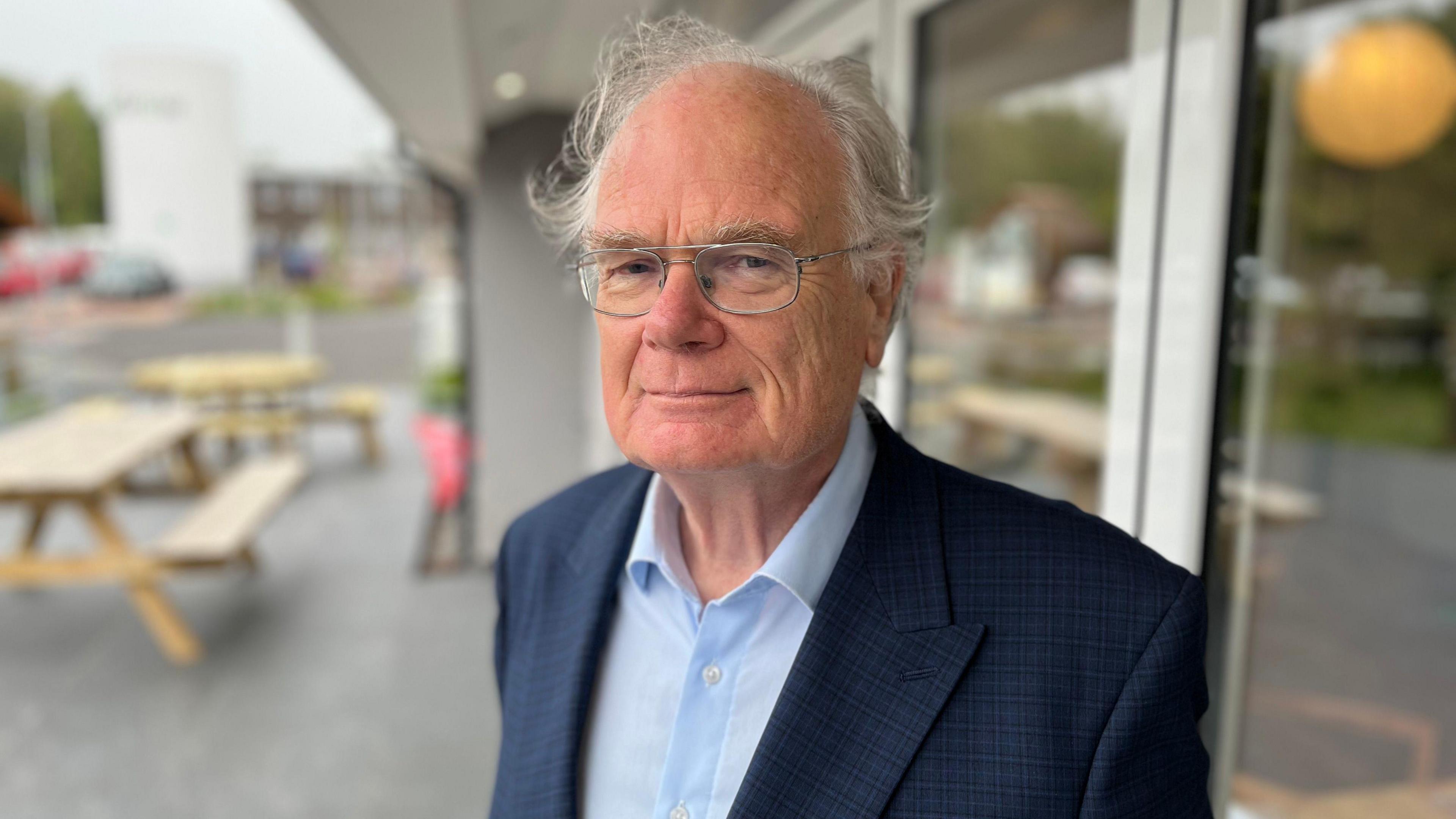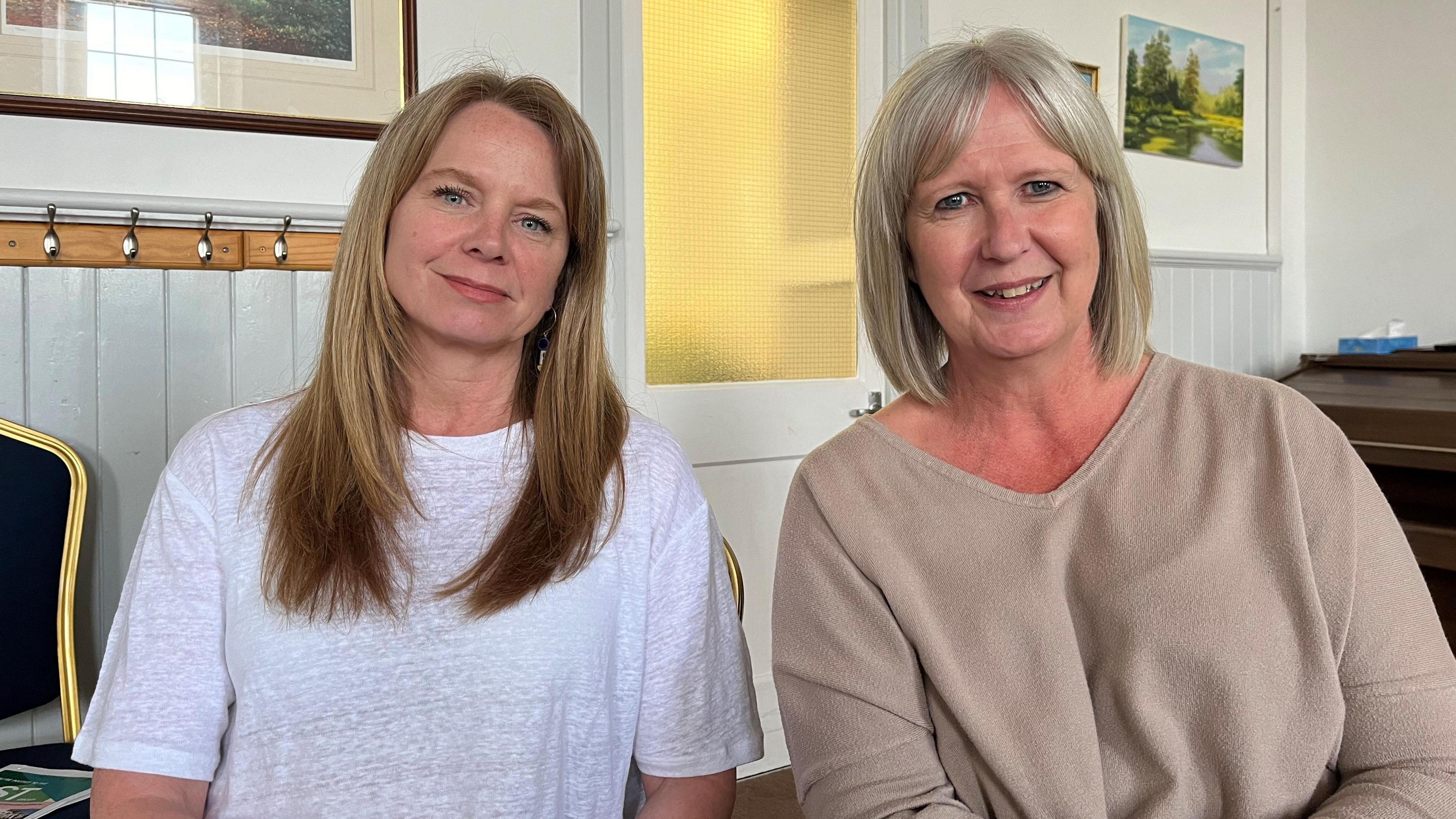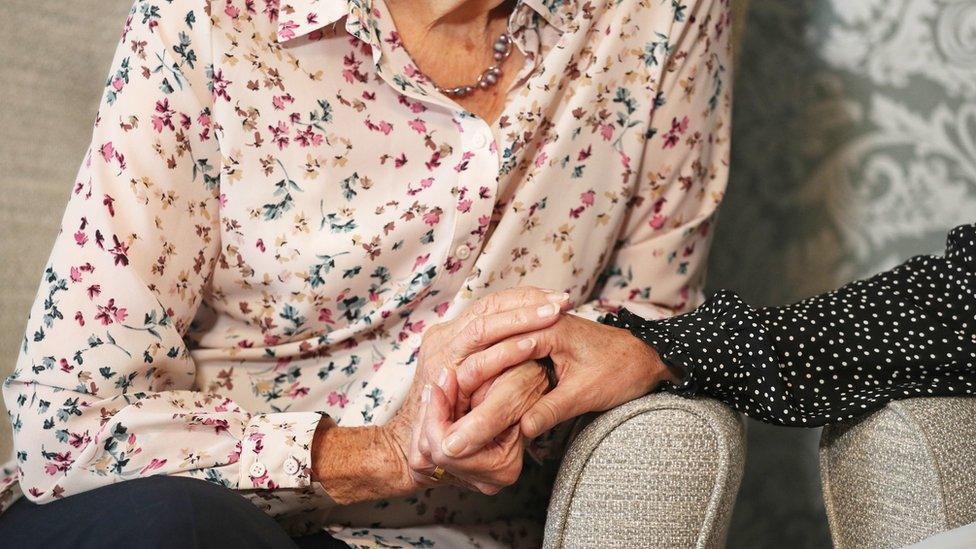Charity calls for reform of carers' allowance

Suzette March cares for her father and her husband who has Parkinson's Disease
- Published
There are calls for the cap on the amount people can earn while getting carers' allowance in Guernsey to be reduced.
Carers Guernsey director Peter Harwood said the household cap of £113,000 is "too high".
Suzette March who cares for her parents and husband said that, because she shares caring responsibilities with her sister, she did not qualify for the allowance.
The Employment and Social Security (ESS) President Peter Roffey said he was "happy to discuss the idea".
'Big commitment'
Mrs March said at times being a carer had been "overwhelming" and the support of Carers Guernsey was "invaluable".
Three years ago, Mrs March's father had a stroke and her stepmother Mary had bladder cancer, which led to her leg being amputated.
"Being a carer is a big commitment, it's meant going to the hospital in Southampton, going to London for three weeks, working with my sister and brother."
Her stepmother died in April and recently Suzette's father had moved into a care home.
She turned to Carers Guernsey in January when she was "desperate".
"It's hard, I don't think people know how hard it is to look after two people, and then go home to someone else who needs looking after as they have Parkinson's disease.
"There was too much going on and the support I received from Carers Guernsey has been invaluable."

Carers Guernsey Director Peter Harwood believes a decision on the future long-term care will require political courage
Former Chief Minister Peter Harwood believed there needed to be a grown-up discussion about how carers are financially supported locally.
But he was concerned this assembly was not mature enough to make what he described as "extremely difficult and unpopular decisions".
On the issue of changing the cap for carers' allowance, he said: "I don't know why it is capped so high, but we certainly don't want to go down to where the UK is."
'Big social issue'
Alongside the calls from Carers Guernsey, Mr Roffey was keen to stress the need for changes to how long-term care of the elderly was funded.
Mr Roffey is part of group of politicians looking at how long-term care insurance can be funded moving forward, with people locally living longer.
"This is such a big social issue. Frankly, if we flunk it, we ought to be ashamed," he said.
"If this assembly kicks it onto the next one, it leads to an exhausted long-term care insurance fund, and people paying in for decades and nothing being left. That's just not acceptable."
He said he was concerned that, without a decision by the States on how long-term care would be funded, there would not be enough investment in care homes locally.
Analysis: John Fernandez, BBC Guernsey political reporter
It's becoming increasingly clear a sustainable decision on funding for people's long-term care is unlikely to be made this political term.
With almost a year until the Guernsey's general election on 18 June 2025, there's a row behind the scenes between the three committees involved about how the proposals should be put forward.
There's an acceptance that taking a percentage of people's properties to pay for long-term care will be incredibly unpopular, which is why some States members want nothing to do with the idea.
It means it's likely this issue, which was effectively punted into the long grass in 2020, could be forced into the next assembly's in-tray.
It's why it's arguably quite politically brave of Carers Guernsey to talk about possibly stopping some carers from receiving an allowance, in an effort to redistribute that money to others who they believe may need it more.
Follow BBC Guernsey on X (formerly Twitter), external and Facebook, external. Send your story ideas to channel.islands@bbc.co.uk, external.
Related topics
- Published1 June 2024

- Published23 May 2024

- Published22 May 2023

- Published10 June 2022
